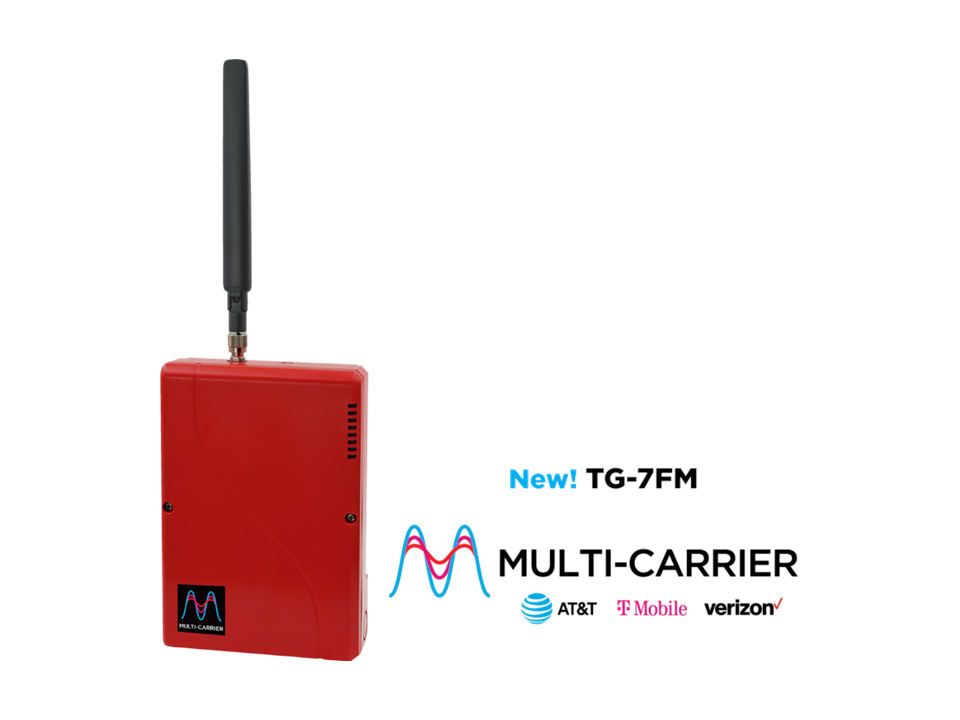An Interview with Daniel Rosales, Senior Director of Technical Services at Telguard

At ESX 2024, the ESA team had the opportunity to sit down with Daniel Rosales, the Senior Director of Marketing, Product Management, and Technical Services at Telguard. With nearly four decades of innovation in cellular communications, Telguard continues to lead the industry with groundbreaking products. In this interview, Daniel provides an in-depth look at their latest advancement, the TG-7FM multi-carrier alarm communicator, and discusses its functionality, development inspiration, and future prospects.
Can you provide an overview of the new Telguard multi-carrier alarm communicator?
Daniel Rosales: Of course, let’s start with a little background. Telguard has been in existence for almost four decades, with a core focus on cellular communications as an alternative to standard phone lines. Since Telguard introduced the concept, the industry has evolved to the point where using cellular communicators is now standard practice in many segments. Historically, there have been two carriers that we gravitated toward: AT&T or Verizon. Telguard’s multi-carrier alarm communicator, the TG-7FM, is the next evolution of cellular technology, designed for the industry. It’s Telguard recognizing that cellular coverage goes beyond the major two carriers we’ve all been working with and recognizing that the best possible cellular coverage and reliability can only be obtained with a device that can use all the major networks in the US.
Can you explain how the multi-carrier functionality works with AT&T, Verizon, and T-Mobile?
Daniel Rosales: Like all the best technological advances, although there is a very complex and technical background to how it works, there is a very easy way to understand the functionality. Through a “patent-pending” development that uses a single SIM but allows the use of our direct connections to each carrier (no virtual operators or third parties), the device is able to analyze and test every connection to all the carriers. The TG-7FM multi-carrier communicator will then use this information to stay connected to the best carrier and keep track of the next best-performing connection. When needed, if the chosen carrier is not available, the device will efficiently connect to the next carrier to deliver alarm data.
What inspired Telguard to develope this product?
Daniel Rosales: Telguard has been the cellular communication leader in the industry for a really long time, so we have seen pretty much everything. No matter how great a device or a system is, one thing we learned is that there is always room for improvement. When looking at some of the biggest pain points that our customers faced, it came down to two things: coverage and reliability. With a single-carrier product, you had to figure out what carrier would work the best when choosing the right product, and once you install that product, you would rely on that one network maintaining stability. The best way to get rid of these pain points was simple. Rather than have the customer worry about what carrier will perform better, we’ll let the customer choose a device that will cover all the carriers at the same time. In other words, if the TG-7FM multi-carrier does not give you cellular coverage, you simply cannot have a cellular device there, it’s that simple. Telguard has always been at the forefront of innovation, and after understanding the needs of the market, from reduced SKUs to the need to increase reliability for fire applications, this was the result of our effort.
Can you share some specific scenarios or use cases where this product would be particularly advantageous?
Daniel Rosales: I think some of the recent publicized events that have happened with single carriers are perfect examples that illustrate issues where having cellular redundancies in place can come in handy. AT&T was in the news this year for a disruption in service. A multi-carrier product would have simply shifted to using the next best carrier wherever the device was deployed, therefore eliminating some of the issues that were felt. On the other hand, issues with coverage can also be mitigated. T-Mobile as a carrier is not really highly talked about in our industry, but that is because over the past few years it has always been just AT&T and Verizon. T-Mobile as a company has made a lot of investments into expanding their coverage. Proof of this is, for example, the recent news of their acquisition of regional carrier US Cellular. The truth of the matter is that the big three carriers are making moves to improve their coverage areas and other metrics of relevancy. While all that goes on, the multi-carrier benefits by being able to use all three networks.
Are there plans for future updates or additional features for this product?
Daniel Rosales: Yes, absolutely. I don’t want to get too far ahead of myself, but the TG-7FM is only the first product from Telguard to have the multi-carrier feature. We see the multi-carrier option becoming a standard feature of future developments.
When will the product be available to the general market?
Daniel Rosales: As with anything we do, we want to make sure we maintain the highest standard of quality upon release. So, everything we do will be UL Listed before being released to the public. We can say we have a great product, but it only holds weight if the proper amount of testing and certification testifies to the same. With that in mind, we are anticipating having the product available by the end of the third quarter of this year.




